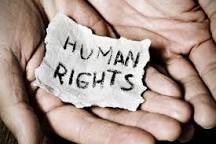
What role do international organizations play in addressing human rights violations?
International organisations play a crucial role in addressing human rights violations through various mechanisms and actions. Here are some key functions they perform:
1. **Monitoring and Reporting**: Organisations like the United Nations (UN) and Amnesty International monitor human rights situations globally. They gather data, conduct investigations, and publish reports that highlight abuses, raising awareness and putting pressure on violators.
2. **Advocacy**: These organisations advocate for the protection of human rights by lobbying governments, influencing public opinion, and urging policy changes. They often mobilise campaigns to raise awareness of specific issues.
3. **Legal Frameworks**: International organisations help establish and promote legal standards for human rights, such as the Universal Declaration of Human Rights and various treaties (e.g., the International Covenant on Civil and Political Rights). They work to ensure compliance with these standards.
4. **Assistance and Capacity Building**: Many organisations provide technical assistance and training to governments and civil society groups to strengthen their capacity to protect human rights. This includes helping to develop legal frameworks, judicial systems, and human rights institutions.
5. **Fact-Finding Missions**: In cases of severe violations, international organisations may deploy fact-finding missions to investigate and document allegations. Their findings can lead to international scrutiny and accountability measures.
6. **Sanctions and Accountability**: Organisations like the UN can impose sanctions or recommend actions against countries or individuals responsible for egregious human rights violations. They may also support international criminal tribunals to prosecute war crimes and crimes against humanity.
7. **Humanitarian Aid**: In situations of conflict or disaster, international organisations often provide humanitarian assistance, including protection for vulnerable populations and support for refugees and internally displaced persons.
8. **Dialogue and Diplomacy**: International organisations engage in dialogue with governments and non-state actors to promote human rights and encourage compliance with international norms. They often facilitate negotiations and peace processes.
While the influence of international organisations can be significant, their effectiveness often depends on the political will of member states and the cooperation of domestic actors. In some cases, there may be resistance or challenges in implementing recommendations, especially in countries with authoritarian regimes.






